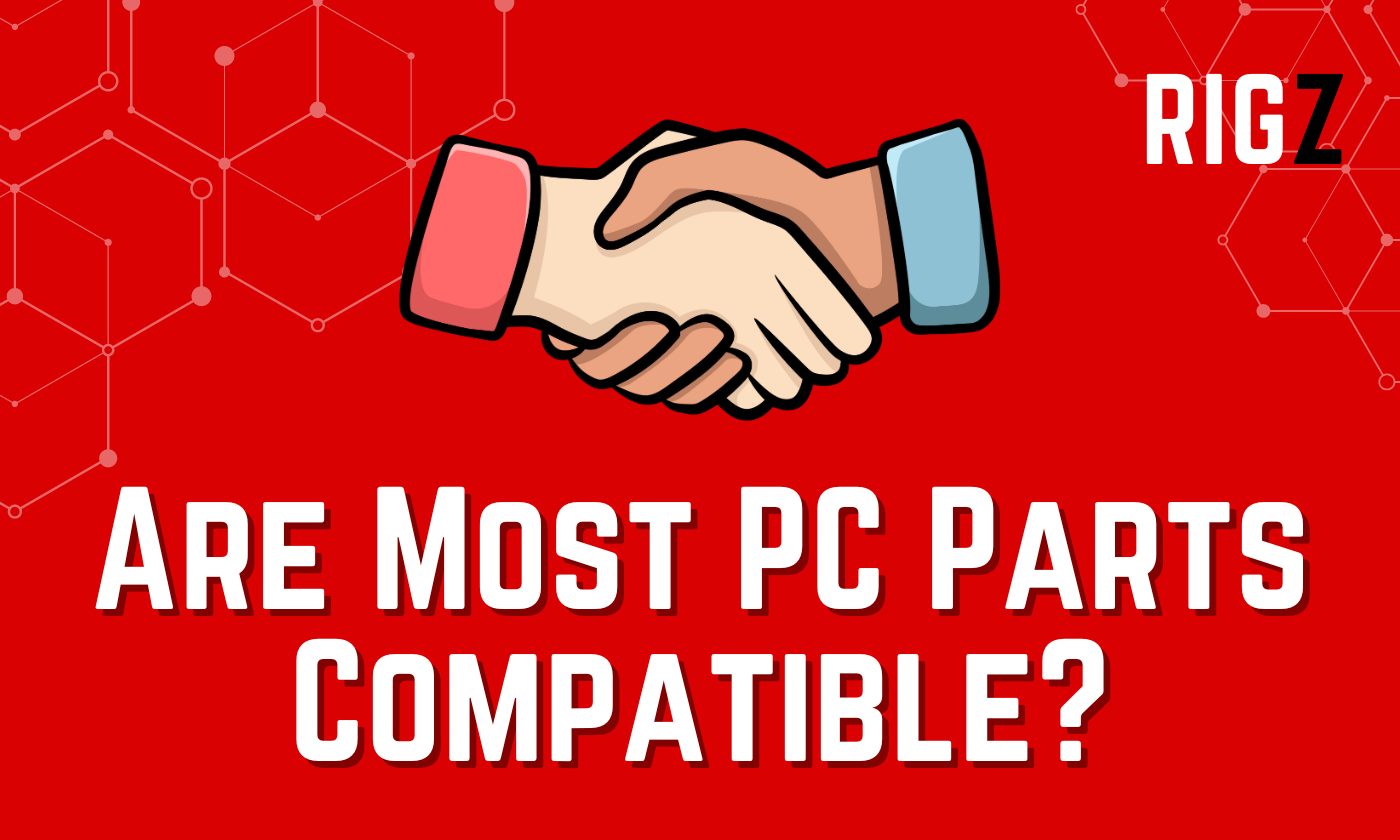When you’re looking to build or upgrade a PC, one question frequently pops up: are most PC parts compatible?
Are Most PC Parts Compatible? A Quick Answer
Not all PC parts are universally compatible. However, many are designed to work together based on industry standards.
But to ensure a seamless experience, you’ll want to double-check each part’s compatibility before making a purchase.
Understanding Compatibility
Let’s start with the heart of the matter: motherboards. Think of them as the central hub where all the action takes place. Depending on its design, a motherboard will support specific types of CPUs, RAMs, and other peripherals. So, if you buy the wrong CPU for your motherboard, it won’t slot in, and your PC might just sit there giving you the silent treatment.
Another example? RAM. There are different types, like DDR3 and DDR4. These aren’t interchangeable, so you’ll want to ensure that the RAM you’re eyeing matches what your motherboard can handle.
Then there’s the graphics card. While most modern graphics cards will fit into any motherboard that has a PCI Express slot, you’ll still want to ensure your PC’s case can house the card and that your power supply can handle its needs.
Common Compatibility Missteps
Now, most people believe that if you’ve got the right sockets and slots, you’re golden. That’s mostly true, but there are other considerations:
- Power Supply: It’s not just about wattage. You’ll want to make sure the power supply has the right connectors for all your components.
- Cooling: Beefy CPUs and GPUs need effective cooling. Make sure your chosen cooler fits inside your case and works with your motherboard and CPU.
- Case Size: Some cases might not have space for larger graphics cards or additional cooling solutions.
FAQ
How do I check for compatibility between parts? Several online tools and websites allow you to input your PC parts and check for compatibility. Websites like PCPartPicker are useful for this.
Is it okay to mix and match brands? Yes, brands generally don’t affect compatibility. However, for components like RAM, it’s often recommended to get identical sticks for optimal performance.
Will any graphics card work with any motherboard? Most modern graphics cards use the PCI Express interface, so they’ll work with motherboards that have PCI Express slots. But always check specifics before purchasing.
Do I need to consider software compatibility too? Absolutely. Ensure that your components are supported by the operating system you plan to use.
Can I trust manufacturer specifications for compatibility? Manufacturers’ specs are a great starting point, but it’s also a good idea to consult user reviews and forums where people might share their firsthand experiences with specific component combinations.
Conclusion
There you have it! While many PC parts are designed to be compatible based on industry standards, it’s not a guarantee. It pays to do your homework before buying components.
Check compatibility, consider the quirks of individual parts, and you’ll be on your way to building or upgrading a machine that runs like a dream.
Always remember: the devil’s in the details, but with a little patience and research, you can avoid those pesky compatibility hiccups.
